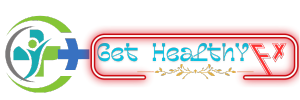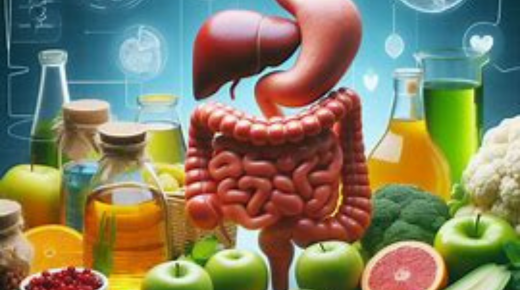Digestive health is essential for overall well-being as it involves the proper functioning of the gastrointestinal (GI) tract, which includes the mouth, esophagus, stomach, intestines, and other organs involved in the digestion and absorption of nutrients. Digestive disorders can significantly impact quality of life and may lead to serious health complications if left untreated. This article explores common digestive disorders and their treatments, providing insights into maintaining a healthy digestive system.
Common Digestive Disorders
Gastroesophageal Reflux Disease (GERD)
Symptoms and Causes
Gastroesophageal reflux disease (GERD) occurs when stomach acid frequently flows back into the esophagus, irritating the lining and causing discomfort.
Symptoms:
- Heartburn: A burning sensation in the chest, often after eating.
- Regurgitation: Acid or food coming back up into the throat.
- Difficulty Swallowing: A feeling of food being stuck in the esophagus.
- Chest Pain: Particularly after eating or at night.
Causes:
- Lower Esophageal Sphincter (LES) Dysfunction: The LES does not close properly, allowing acid to escape.
- Hiatal Hernia: Part of the stomach pushes up through the diaphragm.
- Obesity: Excess weight can put pressure on the abdomen.
- Diet and Lifestyle: Fatty foods, caffeine, alcohol, and smoking can exacerbate symptoms.
Treatments
Lifestyle Modifications:
- Dietary Changes: Avoiding trigger foods like spicy, fatty, or acidic foods.
- Weight Management: Losing weight if overweight.
- Elevating Head During Sleep: Using pillows or a wedge to keep the head elevated.
- Avoiding Late Meals: Not eating within three hours of bedtime.
Medications:
- Antacids: Provide quick relief by neutralizing stomach acid.
- H2 Blockers: Reduce acid production (e.g., ranitidine).
- Proton Pump Inhibitors (PPIs): Block acid production and heal the esophagus (e.g., omeprazole).
- Prokinetics: Help strengthen the LES and improve stomach emptying.
Surgical Options:
- Fundoplication: Wrapping the top of the stomach around the LES to strengthen it.
- LINX Device: A ring of magnetic beads to prevent reflux.
Irritable Bowel Syndrome (IBS)
Symptoms and Causes
Irritable bowel syndrome (IBS) is a chronic condition affecting the large intestine, characterized by abdominal pain, bloating, and changes in bowel habits.
Symptoms:
- Abdominal Pain: Often relieved by defecation.
- Bloating: A feeling of fullness and swelling in the abdomen.
- Diarrhea or Constipation: Alternating or predominant symptoms.
- Gas: Excessive gas and flatulence.
Causes:
- Abnormal Muscle Contractions: Stronger or weaker contractions in the intestines.
- Nervous System Dysfunction: Poor communication between the brain and intestines.
- Inflammation: Low-grade inflammation in the intestines.
- Infections: Gastrointestinal infections or bacterial overgrowth.
- Stress and Hormones: Stress and hormonal changes can trigger symptoms.
Treatments
Dietary Changes:
- Low FODMAP Diet: Reducing fermentable oligosaccharides, disaccharides, monosaccharides, and polyols.
- Fiber Supplements: For constipation-dominant IBS, psyllium may be beneficial.
- Hydration: Drinking plenty of fluids to help digestion.
Medications:
- Antispasmodics: Reduce muscle spasms in the intestines (e.g., dicyclomine).
- Laxatives: For constipation relief (e.g., polyethylene glycol).
- Antidiarrheals: For diarrhea relief (e.g., loperamide).
- Antidepressants: Low doses can help reduce pain and regulate bowel function.
Therapies:
- Cognitive Behavioral Therapy (CBT): Helps manage stress and anxiety, which can trigger IBS.
- Gut-Directed Hypnotherapy: Focuses on improving gut function through relaxation techniques.
Inflammatory Bowel Disease (IBD)
Symptoms and Causes
Inflammatory bowel disease (IBD) includes two main types: Crohn’s disease and ulcerative colitis, both of which involve chronic inflammation of the GI tract.
Symptoms:
- Abdominal Pain and Cramping: Often severe and persistent.
- Diarrhea: Sometimes with blood.
- Weight Loss: Due to malabsorption and loss of appetite.
- Fatigue: Due to chronic inflammation and nutrient deficiencies.
- Fever: Common during flare-ups.
Causes:
- Immune System Response: An abnormal immune response attacks the GI tract.
- Genetics: Family history can increase the risk.
- Environmental Factors: Certain environmental triggers may contribute.
Treatments
Medications:
- Aminosalicylates: Reduce inflammation in the intestines (e.g., mesalamine).
- Corticosteroids: Reduce inflammation and suppress the immune system (e.g., prednisone).
- Immunomodulators: Suppress the immune response (e.g., azathioprine).
- Biologics: Target specific components of the immune system (e.g., infliximab).
Surgical Options:
- Resection: Removing the diseased portion of the intestine.
- Colectomy: Removing the colon in severe cases of ulcerative colitis.
Lifestyle Modifications:
- Diet Adjustments: Identifying and avoiding trigger foods.
- Stress Management: Reducing stress through relaxation techniques and therapy.
- Regular Monitoring: Keeping up with medical appointments and screenings.
Celiac Disease
Symptoms and Causes
Celiac disease is an autoimmune disorder where ingestion of gluten leads to damage in the small intestine.
Symptoms:
- Diarrhea: Frequent, loose stools.
- Bloating and Gas: Abdominal discomfort and distension.
- Weight Loss: Unintended weight loss and malnutrition.
- Anemia: Often due to iron deficiency.
- Skin Rash: Dermatitis herpetiformis, an itchy, blistering skin condition.
Causes:
- Genetic Factors: Certain genetic markers increase the risk.
- Immune Response: Gluten triggers an immune response that damages the small intestine lining.
Treatments
Gluten-Free Diet:
- Elimination of Gluten: Avoid all foods containing wheat, barley, and rye.
- Label Reading: Carefully read food labels to identify hidden gluten.
- Cross-Contamination: Avoid cross-contamination with gluten-containing foods.
Nutritional Support:
- Supplements: May be needed to address deficiencies in iron, calcium, vitamin D, and B vitamins.
- Dietitian Consultation: Work with a dietitian to ensure a balanced, nutrient-rich diet.
Gallstones
Symptoms and Causes
Gallstones are solid particles that form in the gallbladder, often causing pain and other symptoms when they block the bile ducts.
Symptoms:
- Pain: Sudden and intense pain in the upper right abdomen or back.
- Nausea and Vomiting: Often accompany the pain.
- Jaundice: Yellowing of the skin and eyes if a bile duct is blocked.
- Fever: Can occur if there is an infection.
Causes:
- Excess Cholesterol: Too much cholesterol in the bile can lead to stone formation.
- Bile Pigments: Excess bilirubin can cause pigment stones.
- Gallbladder Function: Impaired gallbladder function can contribute to stone formation.
Treatments
Medications:
- Bile Acid Pills: Help dissolve cholesterol gallstones over time (e.g., ursodeoxycholic acid).
Non-Surgical Procedures:
- Extracorporeal Shock Wave Lithotripsy (ESWL): Breaks up stones using sound waves.
- Endoscopic Retrograde Cholangiopancreatography (ERCP): Removes stones from the bile duct.
Surgical Options:
- Cholecystectomy: Surgical removal of the gallbladder, typically laparoscopic.
Constipation
Symptoms and Causes
Constipation is characterized by infrequent bowel movements or difficulty passing stools.
Symptoms:
- Infrequent Bowel Movements: Fewer than three bowel movements per week.
- Hard or Lumpy Stools: Difficulty passing stools.
- Straining: Excessive straining during bowel movements.
- Abdominal Discomfort: Bloating and discomfort in the abdomen.
Causes:
- Diet: Low fiber intake and inadequate hydration.
- Sedentary Lifestyle: Lack of physical activity.
- Medications: Certain medications can cause constipation.
- Medical Conditions: Hypothyroidism, diabetes, and other conditions can contribute.
Treatments
Dietary Changes:
- Increase Fiber Intake: Consume more fruits, vegetables, whole grains, and legumes.
- Stay Hydrated: Drink plenty of water throughout the day.
- Regular Meals: Eat meals at regular intervals to promote bowel regularity.
Medications:
- Laxatives: Various types, such as bulk-forming, osmotic, stimulant, and stool softeners.
- Prescription Medications: For chronic constipation (e.g., lubiprostone, linaclotide).
Lifestyle Modifications:
- Exercise Regularly: Engage in physical activity to stimulate bowel function.
- Establish a Routine: Set a regular time each day for bowel movements.
- Avoid Holding Back: Respond to the urge to have a bowel movement promptly.
Digestive health is vital for overall well-being, and understanding common digestive disorders and their treatments can help you manage symptoms and maintain a healthy GI tract. From lifestyle changes and dietary adjustments to medications and surgical options, there are various ways to treat digestive disorders effectively. By taking proactive steps to address digestive health issues, you can improve your quality of life and prevent complications. Always consult with a healthcare professional for personalized advice and treatment plans tailored to your specific needs.

